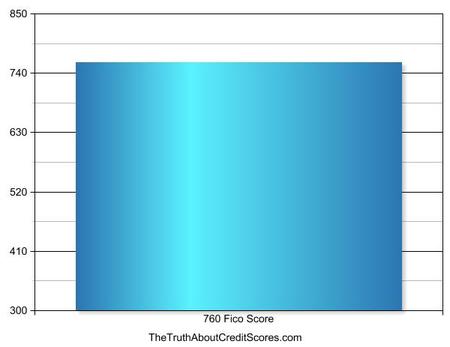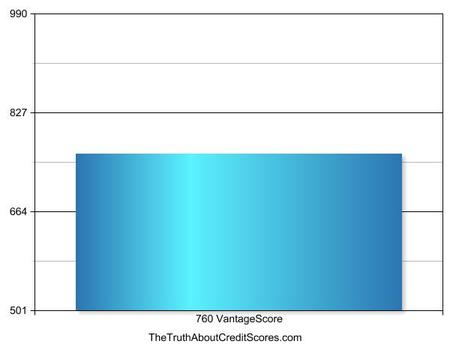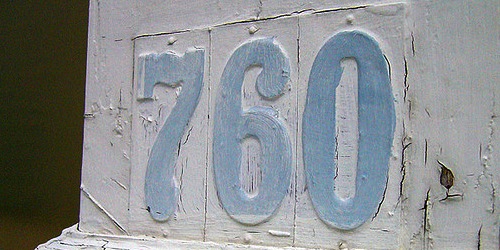760 Credit Scores Are Now Pretty Important
Every once and a while I talk about specific credit scores to highlight their importance.
And so today, we’ll discuss a “760 credit score,” which is more than an arbitrary three-digit number.
Believe it or not, exact numbers matter in the credit scoring world. Why? Because certain banks and lenders set credit scoring thresholds not only for interest rates, but also for flat-out approvals.
So it’s actually pretty common these days to see mortgage lenders ask for really high credit scores in order to qualify for a home loan.
760 Fico Score the Highest Threshold

For example, the highest credit scoring tier nowadays is 760, at least as far as Fico scores are concerned. And Fico scores are pretty much the only credit score mortgage lenders use.
This doesn’t means you won’t be approved with a credit score below 760, it just means you may not receive the lowest interest rate on your mortgage, or have the privilege of picking any loan program you’d like.
Higher Credit Scores Needed
Back before the economic crisis unfolded, lenders seemed happy enough with credit scores of 720 and above. Then it went to 740 and above.
But as credit scores were deemed less and less reliable, lenders have upped the ante, and those with less than perfect credit scores are paying the price, literally.
They’re getting stuck with higher interest rates, which can cost them hundreds of dollars a month, and thousands over the life of the loan. It can really add up folks.
This means it’s that much more important to attain the highest credit scores possible. Otherwise, you’re pretty much throwing money down the drain.
Credit Scores Aren’t Everything
Of course, credit scores aren’t everything. They’re just one piece of the pie. You could have a 760 credit score, but without steady employment history, along with decent income and assets, the lender may still say “no.”
Meanwhile, a less creditworthy borrower could snag a mortgage, albeit at a higher interest rate.
In short, this means credit scores of 760 and above are key to ensure nothing holds you back when applying for loans.
And credit scores are still the one thing borrowers have complete control over, and thus they should do all they can to ensure they remain high on the credit score scale.
After all, you don’t necessarily have control over your income or assets, at least not entirely. Bills must be paid, and not everyone can be a millionaire.
However, there’s no excuse for a bad credit score. If we all paid our bills on time, and kept debt to a minimum, we’d all be in pretty good shape.
760 VantageScore Barely Above Average

And while a 760 Fico score is pretty much as good as it gets in terms of the benefits you’ll receive, a 760 credit score with the lesser relied upon VantageScore isn’t as hot.
You see, the average VantageScore is around 750, so you’d be just barely above average.
You’d also be in the company’s “C” credit grade bucket, which certainly isn’t the top tier, as we know from all those painful years in school.
So if your VantageScore is this low, you may want to take a hard look at your credit report to determine what’s keeping you down.
It’s certainly not a terrible credit score, but it will hold you back from the best terms offered by creditors, and could shut you out of financing entirely in some cases.
Read more: How to improve your credit score.
(photo: Linden Tea)

It’s true. Lenders now want a 760 or higher for their lowest mortgage rate.